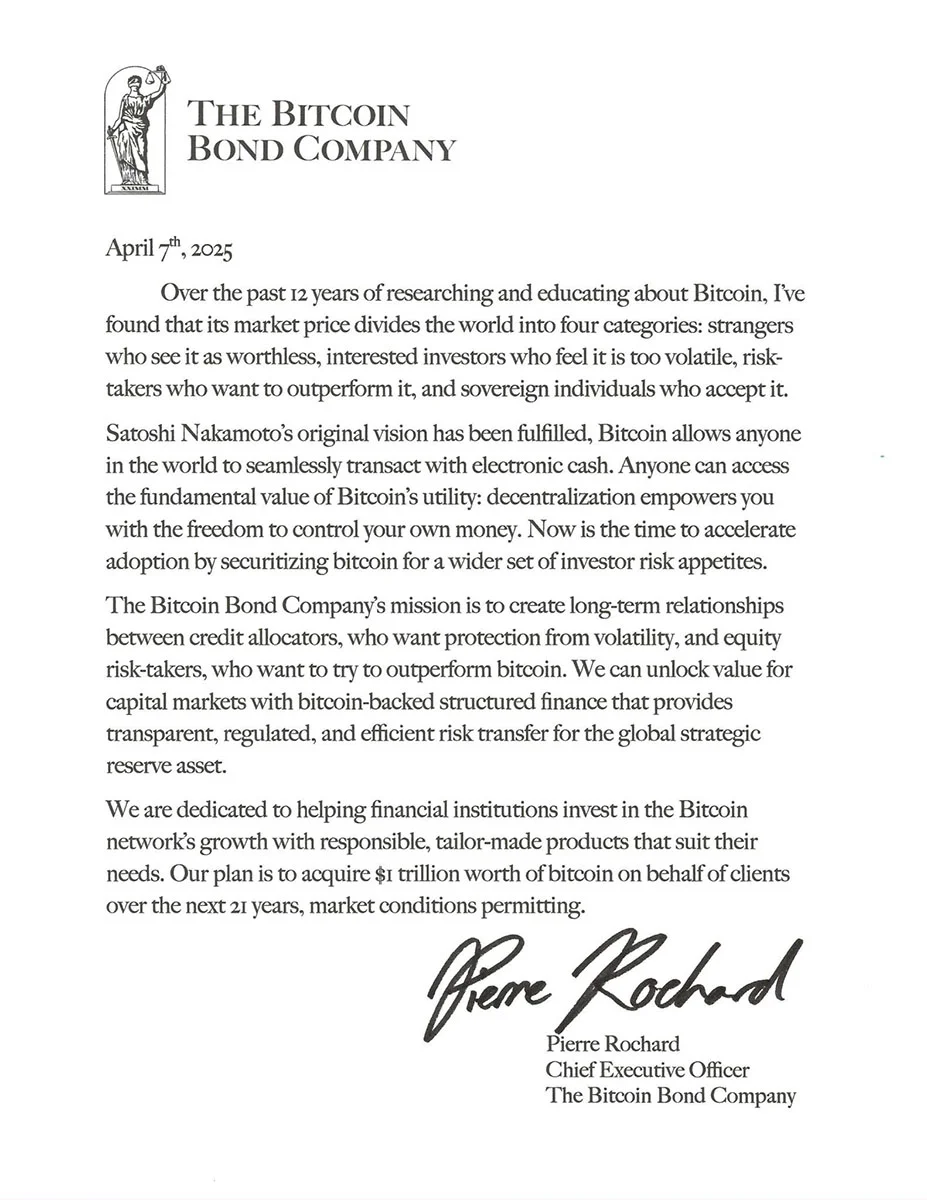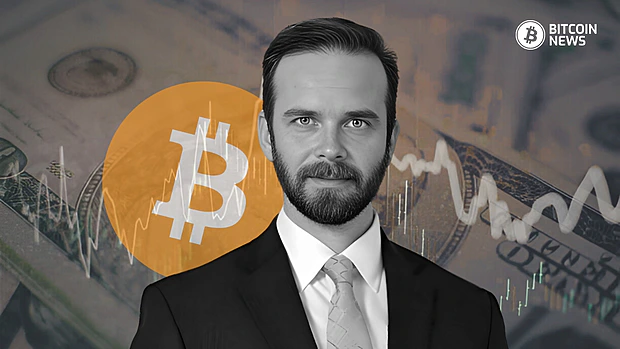Pierre Rochard, a long-time Bitcoin advocate and well-known figure in the space, has launched a new venture to bring bitcoin to traditional fixed-income markets.
The new company, The Bitcoin Bond Company, will offer bitcoin-backed financial products for institutional investors who want exposure to bitcoin without actually holding the asset.

Rochard has been involved with Bitcoin since 2012 and is known in the community as a “Bitcoin maximalist OG”.
Over the years he’s played key roles at major Bitcoin companies like BitPay and Kraken and most recently was Vice President of Research at Riot Platforms, a large bitcoin mining company.
At Riot, he was known for pushing back against environmental criticism of bitcoin mining and even led a viral video campaign that reframed mining as a form of value creation.
Now he’s setting his sights on an even bigger target.
The Bitcoin Bond Company will acquire $1 trillion in bitcoin over 21 years by offering transparent, regulated and secure bitcoin-only products for traditional credit investors.
The company is building structured financial products – similar to bonds – that use bitcoin as the underlying asset. These products are designed for credit allocators who want returns but are wary of bitcoin’s volatility.
Unlike direct ownership of bitcoin which can be complex for institutions due to regulatory and custody issues, these bitcoin-backed bonds offer a more familiar and manageable structure. Rochard believes this will unlock institutional capital that has so far stayed on the sidelines.
He says they are creating a bridge between credit allocators who want stability and speculators who want high returns, adding, “Bitcoin-backed credit products are inevitable”.
The launch of The Bitcoin Bond Company marks a bigger shift in how bitcoin is viewed in the financial world. Rochard says bitcoin is no longer just a fringe experiment or a speculative asset, but a “core monetary technology”.
He also believes bitcoin’s price movements are no longer best explained by the 4-year halving cycle, a popular theory among early Bitcoin users.
Instead, he points to bitcoin’s growing status as a global macro asset — increasingly influenced by interest rates and broader economic trends. “Bitcoin’s CAGR is now tied to interest rates,” Rochard said. “Higher Fed rates pull capital out of bitcoin — that’s what slows adoption.”
This is the macro view that The Bitcoin Bond Company is built around. They will build investment products that can work in any economic environment and offer tranches of risk like traditional structured finance.
Despite institutional interest in bitcoin, Rochard sees education as the biggest hurdle. Many fixed-income investors are used to products backed by real estate or corporate debt—not decentralized digital assets.
“Most investors have never seen a fixed-income product backed purely by bitcoin,” he said. “That’s a new asset class for them.”
To fix this, Rochard will be speaking at Consensus 2025 in Toronto, where he’ll be accelerating education among institutions exploring new asset classes.
His point is clear: Bitcoin-backed bonds aren’t just possible — they’re necessary for the next phase of adoption.
The company’s launch comes at a time of potential regulatory shift. Rochard is optimistic that under a changing U.S. political environment, regulatory agencies like the SEC will be more neutral and merit-based with bitcoin-related financial products.










